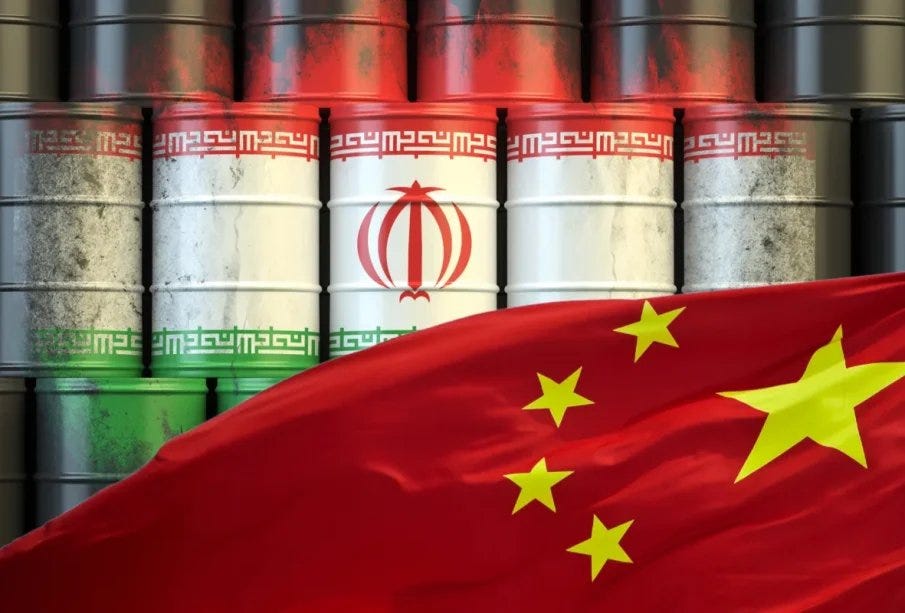Trump Just Gave China the Green Light to Buy Iranian Oil. Here’s What it Really Means.
Houthi Oil Smuggling Under Threat as Trump Opens Path for Iran–China Trade
Today, US President Donald Trump quietly indicated plans to allow Iran to sell oil to China legitimately. No fanfare or ambiguity. Just the single largest shift in US policy on Iranian sanctions in decades. Oil prices—remarkably stable despite months of regional escalation—fell sharply, with benchmark Brent Crude down 6.1% to $67.14 per barrel, below its pre-conflict level.
To most, this reads as geopolitical transactionalism: a token of gratitude in exchange for sustained peace with Israel. But beneath the surface lies something more consequential: a shift away from proxy-run smuggling—and the quiet rerouting of illicit liquidity.
Iranian Oil, The Houthis, and China
For years, Houthi-controlled maritime corridors masked Iranian oil shipments, blending sanctioned flows with gray-market cover—something I analyzed in a May article for GNET.
These networks weren’t purely regional. Chinese actors were involved at every stage.
Hong Kong–based shipping firms handled logistics.
Most importantly, privately owned Chinese “teapot” refineries bought the crude—until one was sanctioned by Washington.
Following those sanctions—and amid excess capacity in the state-owned refinery sector—China pulled back, at least on paper. But the real picture never changed: despite sanctions, China still buys an estimated 90% of Iranian crude, serving as the regime’s primary economic lifeline.
Meanwhile, blockchain analytics firms uncovered $39 million in illicit transactions tied to the Houthis through Cambodia-based Huione—a Chinese-language money laundering platform. Most of the transactions were in Tether, USDT, a cryptocurrency of choice for illicit global transactions.
Although it’s unclear whether those funds came directly from oil, Huione’s proximity to other Chinese interests is telling:
Huione caters to Southeast Asia’s multi-trillion-dollar Chinese criminal economy.
One of its directors is a cousin of Cambodian President Hun Manet, a key Beijing ally.
Even if the Houthis didn’t launder oil proceeds through Huione, the ecosystem is aligned, active, and ready to process additional transactions despite sanctions and an apparent shutdown.
Strategic legitimacy and a pivot toward something else
The Houthis’ smuggling networks did two things:
Move product
Keep Tehran’s proxy paid, armed, and strategically relevant
But if Trump’s statement becomes policy, those networks may be obsolete. Why risk Red Sea interdictions, maritime deception, or unstable crypto intermediaries—when China can buy Iranian oil openly?
A deeper recalibration is underway:
From non-state to state-enabled liquidity
From criminal logistics to negotiated gray trade
From covert war finance to quiet deals between powers
If Iran can reroute oil through state-to-state deals, the Houthis lose their utility as financial intermediaries. That doesn’t mean they vanish. It means they mutate, not disappear. If this deal goes through, expect a pivot on the part of the Houthis:
More attacks on shipping lanes
More arms trafficking
Possible cyber-financial disruption
The Houthis have weathered harder shifts; if sidelined from smuggling, they’ll find new ways to stay relevant—likely darker, leaner, and harder to trace.




Please note: This platform does not tolerate support for designated terrorist organizations. Comments violating this standard will be removed.
Interesting. Let's hope the Houthi's don't find a new way to extort their wealth